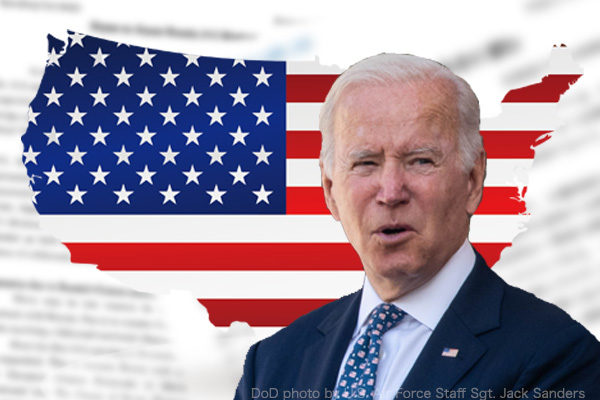U.S. President Joe Biden’s State of the Union address on February 7 provided misgivings to Japan that shares the Indo-Pacific strategy with the United States. Firstly, while talking about China, Biden did not say a word about Taiwan. He neither vowed not to allow the change of status quo of Taiwan by force nor mentioned the significance of the Taiwan Strait’s stability.
Making no mention of Taiwan
Biden has indicated U.S. military intervention four times in the event of Chinese invasion of Taiwan. For that reason alone, the State of the Union address was disappointing, leading us to suspect the past bold remarks might have been only the heat of the moment.
While declaring not to seek conflict with China, Biden sent the following message to the Chinese leadership:
“But make no mistake about it: As we made clear last week, if China threatens our sovereignty, we will act to protect our country. And we did.”
He was referring to the fact that a U.S. fighter jet shot down a Chinese reconnaissance balloon after its flight across the U.S. mainland. But he mentioned only “our country” or the United States as a country to be defended.
Furthermore, the Biden administration’s action against the Chinese balloon was not prompt. Republicans criticized the Democratic administration for failing to respond to the balloon upon its entry into U.S. territorial airspace over Alaska and allowing irresponsibly the balloon to do surveillance on an intercontinental ballistic missile (ICBM) base and missile defense facilities before the shootdown. House Intelligence Committee Chairman Mike Turner (R-Ohio) described the move as “like tackling the quarterback after the game is over.”
The balloon incident has been dubbed even as a “balloongate.” The administration has been suspected of having attempted to conceal or cover up the presence of the Chinese balloon to go ahead with Secretary of State Antony Blinken’s planned visit to China. The White House may have knowingly refrained from publishing the presence of the balloon until ordinary people photographed it and turned the presence into a public issue. It also kept from providing the House and Senate intelligence committee chairs and other congressional leaders with a usual secret briefing on a security emergency.
The Biden administration has described climate change as the biggest national security threat and positioned China as a partner in tackling the threat, seeking talks with Beijing on the matter. Biden reiterated such attitude in the latest address. But China should be viewed as the biggest threat to national security. A decarbonization fundamentalism can be exploited by the Chinese and may be viewed as the biggest problem of Biden’s foreign policy.
Making it difficult to overcome U.S. divide
In the address, Biden told Republican lawmakers that “winning the competition with China should unite all of us.” Later in the address, however, he repeatedly criticized the Republicans by name, inviting a Republican lawmaker shout “liar” at Biden. This was unusual for a State of the Union address. Republican House Speaker Kevin McCarthy also expressed displeasure by shaking his head.
Biden might have made partisan remarks to get support from leftist Democrats toward his reelection bid, risking the deterioration of relations with Republicans. This approach will create deeper divide instead of unity in the United States.
Another matter of concern was that Biden in the address made no mention of North Korea that has accelerated nuclear missile development and continued human rights violation including the abduction of Japanese citizens.
Yoichi Shimada is a senior fellow and Planning Committee member, Japan Institute for National Fundamentals, and a professor at Fukui Prefectural University.


